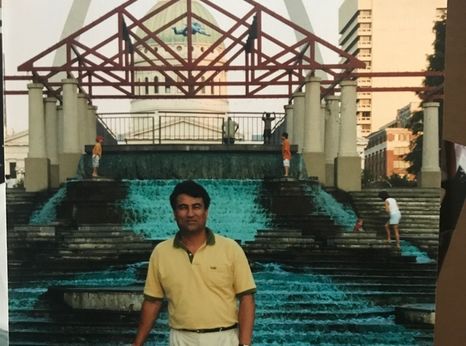Fears for Uyghur academic demand answers

Tashpolat Tiyip is a geographer known for research on the impact of desertification on the ecology of Xinjiang. In 2010, he was appointed the president of Xinjiang University. In March 2017, he was detained at Beijing International Airport while traveling to Germany with a group of students and reportedly sentenced to death and suspended for two years, on charges of separatism. On 27 December 2019, a Chinese Foreign Ministry spokesman denied this report, claiming that Tashpolat Tiyip was suspected of corruption and bribery and his case had not yet been decided.
Uyghurs are a mainly Muslim ethnic minority who are concentrated primarily in the Xinjiang Uyghur Autonomous Region (Xinjiang) in China. Since the 1980s, the Uyghurs have been the target of systematic and extensive human rights violations. This includes arbitrary detention and imprisonment, incommunicado detention, and restrictions on religious freedom as well as cultural and social rights. Local authorities maintain tight control over religious practice, including prohibiting all government employees and children under the age of 18 from worshiping at mosques. Chinese government policies limit the use of the Uyghur language, impose severe restrictions on freedom of religion and encourage sustained influx of Han migrants into the region.
Media reports illustrated the extent of the new draconian security measures implemented since Chen Quanguo came into power as Xinjiang’s Party Secretary in 2016. In March 2017, the Xinjiang government enacted the “De-extremification Regulation” that identifies and prohibits a wide range of behaviours labelled “extremist”, such as “spreading extremist thought”, denigrating or refusing to watch public radio and TV programmes, wearing burkas, having an “abnormal” beard, resisting national policies, and publishing, downloading, storing, or reading articles, publications, or audio-visual materials containing “extremist content”. It is estimated that up to a million Uyghurs, Kazakhs and other predominantly Muslim people have been held in secretive “transformation-through-education” centres, where numerous human rights violations can take place. The Chinese authorities describe them as voluntary, free “vocational training” centres, and rejected calls from the international community, including Amnesty, to allow independent experts unrestricted access to Xinjiang.
Amnesty International has also remained concerned about the secretive use of the death penalty in Xinjiang, in the context of the increased security measures in the “strike hard” campaigns. Such campaigns have typically been associated with the increased use of the death penalty, and scholars have criticized the proceedings used as part of these crackdowns for their lack of fair trial safeguards and the likelihood of “wrongful executions”.
An in-depth investigation published by Amnesty International in April 2017, China’s Deadly Secrets, shows that despite claims by China that it is making progress towards transparency in the criminal justice system, Chinese authorities enforce an elaborate secrecy system to obfuscate the extent of executions. This investigation found hundreds of executions in public media reports are missing from a national online court database, “China Judgements Online”, even though such case should be uploaded according to Chinese regulations. This was also particularly relevant to death penalty cases relating to the Xinjiang region. Amnesty International opposes the death penalty in all cases and under any circumstances, as a violation of the right to life and the ultimate cruel, inhuman and degrading punishment. The organization has been campaigning for global abolition of the death penalty for over 40 years.